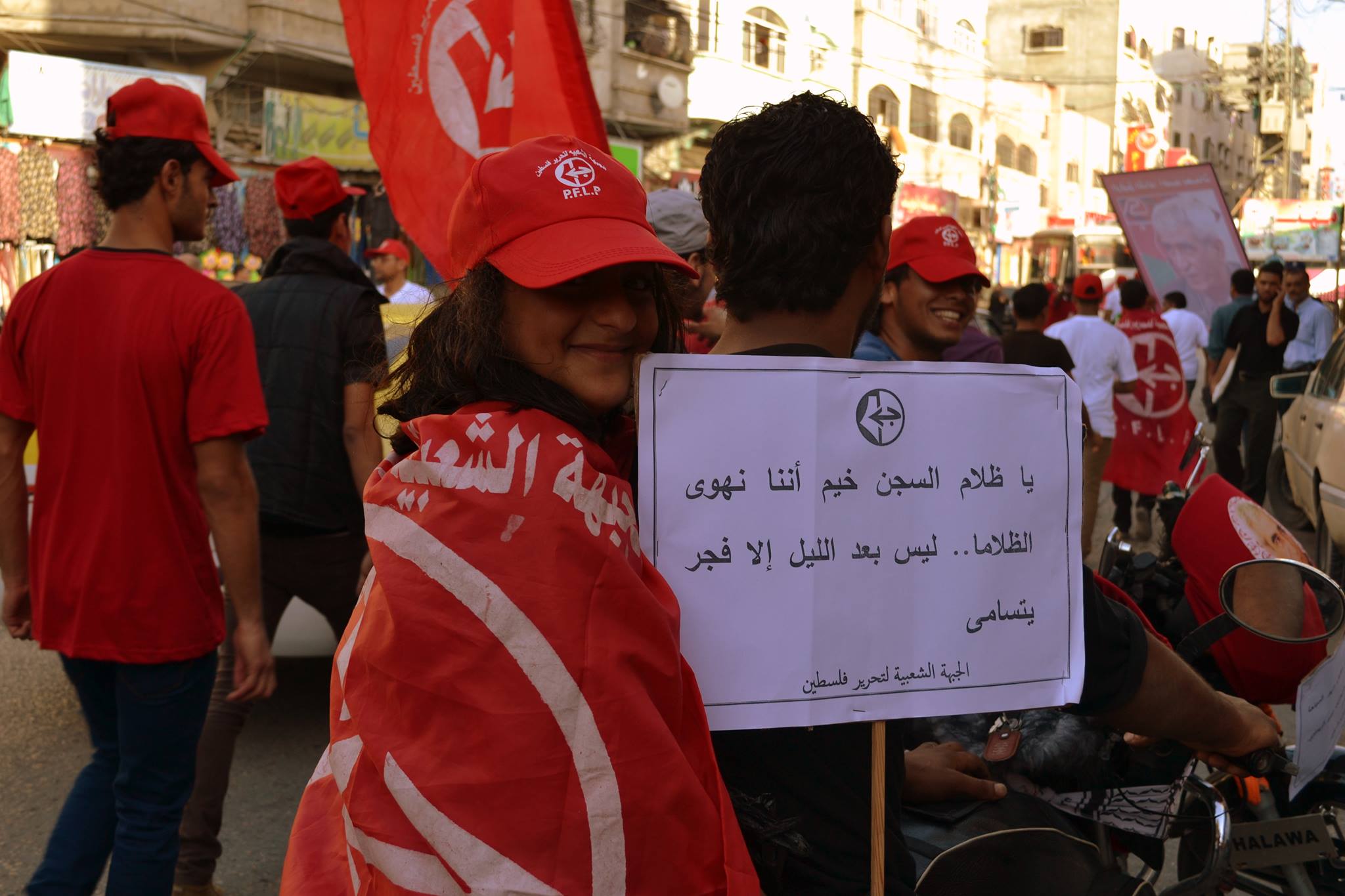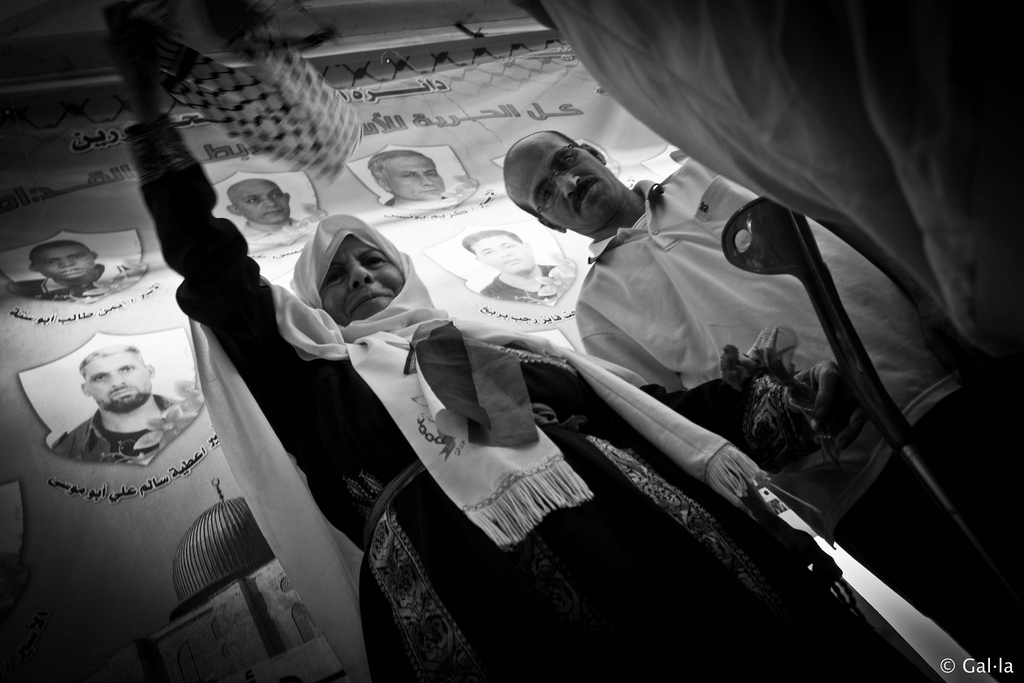Tag: Prisoner
-
Video and photos: March for Ahmad Sa’adat and all Palestinian prisoners, Gaza
23rd October 2013 | International Solidarity Movement, Rosa Schiano | Gaza, Occupied Palestine A march in solidarity with Ahmad Sa’adat and all the Palestinian political prisoners in Israeli jails, Gaza City, 22 October 2013.
-
Photos: A morning with the resistance at Gaza’s Monday protest for detainees
23rd October 2013 | International Solidarity Movement, Gal·la López | Gaza, Occupied Palestine It’s 9:00 am, and today the Red Cross in Gaza City is more crowded than usual. Women, men, children and the elderly await the arrival of the resistance. In a moment, they will receive some members of the al-Qassam Brigades, the armed wing of the Hamas…
-
Photos: Gaza children hold march and candlelight vigil to free Ahmad Sa’adat
19th October 2013 | International Solidarity Movement, Gaza Team | Gaza, Occupied Palestine Dozens of Palestinian children marched in Gaza Friday evening before holding a candlelight vigil outside the Palestinian Legislative Council (PLC). The event was the first in a global week of action to free Ahmad Sa’adat and other Palestinian prisoners held by Israel. Sa’adat, an…



